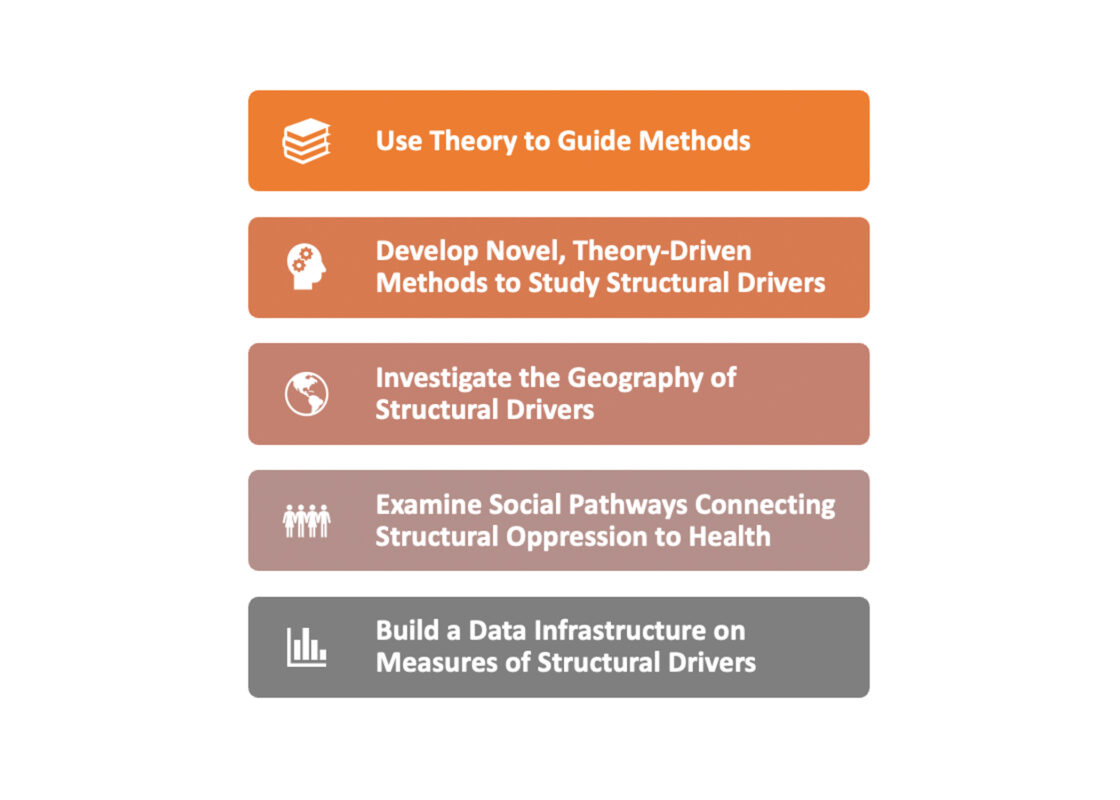The Future of Social Determinants of Health: Looking Upstream to Structural Drivers
Brown and Homan recommend in this article that population health research more closely examine systems of oppression using methods that account for their complexity.
Summary:
A broad base of research has shown that marginalized and minoritized groups in the United States tend to have worse health outcomes. Policies that work to change oppressive social, economic, and political conditions are essential for improving population health and achieving health equity. However, these conditions themselves are driven by larger institutional systems.
Thus, in order to be effective, health policies must be informed by research that accurately characterizes the structures behind social determinants of health—“the causes of the causes.” Brown and Homan argue that future studies of health inequality should examine structural oppression, using novel methods to account for its multilevel, multifaceted, interconnected, systemic, and intersectional nature.
Brown and Homan also recommend that the U.S. Department of Health and Human Services create and maintain a national publicly available, user-friendly database featuring contextual measures of structural oppression. Such a database would reduce barriers to researchers striving to analyze these complex phenomena.
Brown, Tyson H. and Patricia Homan. 2023. “The Future of Social Determinants of Health: Looking Upstream to Structural Drivers.” Milbank Quarterly, 101(S1):36–60.

